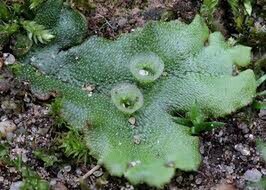A New Frontier in Medicinal Cannabinoids
In the world of medicinal plants, cannabis has long held the spotlight due to its powerful cannabinoids like THC, which offer therapeutic benefits for pain, inflammation, and a host of other conditions. However, recent research has uncovered a surprising contender from the plant kingdom that may offer similar benefits without the psychoactive effects associated with THC: liverwort.
Liverwort, specifically species like Radula marginata and Radula perrottetii, has been found to produce a compound known as perrottetinene, which closely resembles THC in its molecular structure. This discovery, initially made by Japanese researchers in the 1990s, suggested that liverwort could activate the same cannabinoid receptors in the brain as THC, leading to similar medicinal effects. However, unlike THC, perrottetinene induces only mild psychoactive effects, making it a potentially safer alternative for therapeutic use.
Recent studies have delved deeper into the pharmacological properties of perrottetinene. Researchers from the University of Bern and ETH Zurich found that this compound not only activates cannabinoid receptors but also exhibits potent anti-inflammatory properties. This makes it a promising candidate for treating conditions like chronic pain and neuroinflammation, potentially offering the benefits of cannabis-based therapies without the associated legal and recreational use concerns.
Moreover, liverwort species are naturally found in New Zealand, Japan, and Costa Rica, where they have been part of traditional medicine for generations. The potential of these moss-like plants is only beginning to be understood, and ongoing research is aimed at exploring how liverwort-derived cannabinoids might be synthesized and used in mainstream medicine.
This discovery opens up exciting possibilities for the future of natural medicine, particularly for those seeking alternatives to cannabis-derived products. As research progresses, liverwort could become a key player in the development of new, non-psychoactive cannabinoid therapies that provide the healing benefits of THC without the high.
This evolving field highlights the vast, untapped potential of plants beyond the well-known cannabis, inviting a broader exploration of natural compounds that could revolutionize the treatment of various medical conditions.
Sources:
ScienceDaily
New Atlas
The Independent


